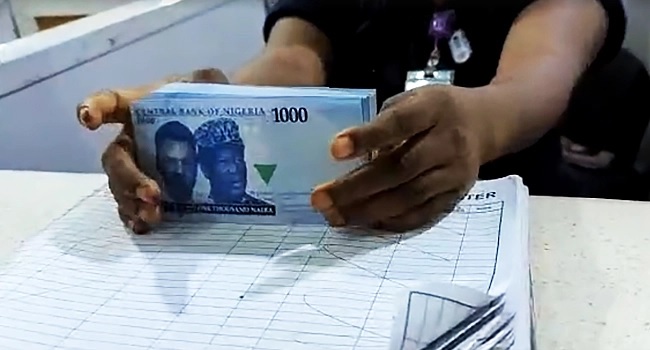
In the wake of the Nigerian government’s decision to float the naira, causing it to record a massive fall in the FX market against the dollar, JP Morgan on Thursday, projected that the currency will appreciate in the coming months, trading around N600 to a dollar.
The naira fell as much as N755 to a dollar on Wednesday following the announcement by the Central Bank of Nigeria (CBN) that all FX market control has been removed and all forex segments have been unified. But the American multinational financial services firm said that the naira, which later appreciated on Thursday, trading at N664.04 per dollar in the Investor and Export window, will settle at N600s in the coming months.
A statement by the institution said: “While it will take a few days for USD/NGN spot to settle, we fully expect an initial overshoot towards the parallel market rate of -750 or higher, after which, we expect USD/NGN to settle in the high 600s over [the] coming months.
Tekedia Mini-MBA edition 16 (Feb 10 – May 3, 2025) opens registrations; register today for early bird discounts.
Tekedia AI in Business Masterclass opens registrations here.
Join Tekedia Capital Syndicate and invest in Africa’s finest startups here.
“We remain long USD/NGN via non-deliverable forwards (NDFs) as well as OW emerging markets bond index global diversified (EMBIGD) index as we expect further positive catalysts to materialize in the near-term.
“We believe there is room for incremental positive surprises with respect to reform depth and execution speed. We had high expectations for the new administration’s reform agenda, however, the speed of execution has proven to be a positive surprise.”
While the government’s decision to float the naira has been widely applauded as the right step to boost foreign and portfolio direct investments, concerns have been raised about the inevitable rise in petrol prices the decision will force.
The Nigerian National Petroleum Company Limited (NNPCL), which previously had the monopoly of fuel import, said petrol price was pegged at N461 per dollar. Fuel is currently selling at N557 per liter following the removal of fuel subsidy by President Bola Tinubu last month. With the naira now trading at over N660 per dollar, petrol cost is expected to rise between N650 and N750 per liter.
JP Morgan said this reality could result in a further spike in Nigeria’s inflation rate. The Nigerian Bureau of Statistics announced Thursday that headline inflation climbed to 22.41 in May. JPMorgan said the rate could rise as much as 25 percent next month – remaining above 20 percent for the rest of the year.
“The near tripling of fuel prices could see headline inflation jump closer to the 25 percent mark in June and remain firmly above 20% for the rest of the year.
“However, fuel subsidies accounted for 1.7 percent of GDP in 2022 and a complete removal will be positive for the fiscal accounts, although we expect that some portion of the savings will be targeted towards social spending.
“Of course, a weaker exchange rate means the government would receive higher naira revenues from oil and gas exports.
“We believe the devaluing of the naira yesterday could have a more limited impact on headline inflation given a substantial part of the informal economy accessed dollars at the much higher parallel market rate,” the bank said, adding that there is room for more near-term reform execution surprises.
The near-term reforms are expected to focus on taming the inflationary impact of the new FX and fuel subsidy policies.
The National Executive Council (NEC) said Thursday after its inaugural meeting that it is seeking ways to provide palliatives for workers to mitigate the impact of the subsidy removal.
After the Council’s meeting, which was headed by Vice President Kashim Shettima, Governor Bala Mohammed of Bauchi State mentioned that they explored the potential of securing funds from the World Bank and partners in London to implement a Compressed Natural Gas (CNG) program for vehicles in the country. This initiative is intended to alleviate the impact of fuel subsidy removal.
Governor Mohammed also highlighted that the Council considered other proposals, such as the organized labor’s suggestion for a consequential adjustment on allowances amounting to N702.9 billion. Additionally, they discussed a request for a monthly allocation of no less than N25 billion to mitigate the effects of subsidy removal.



